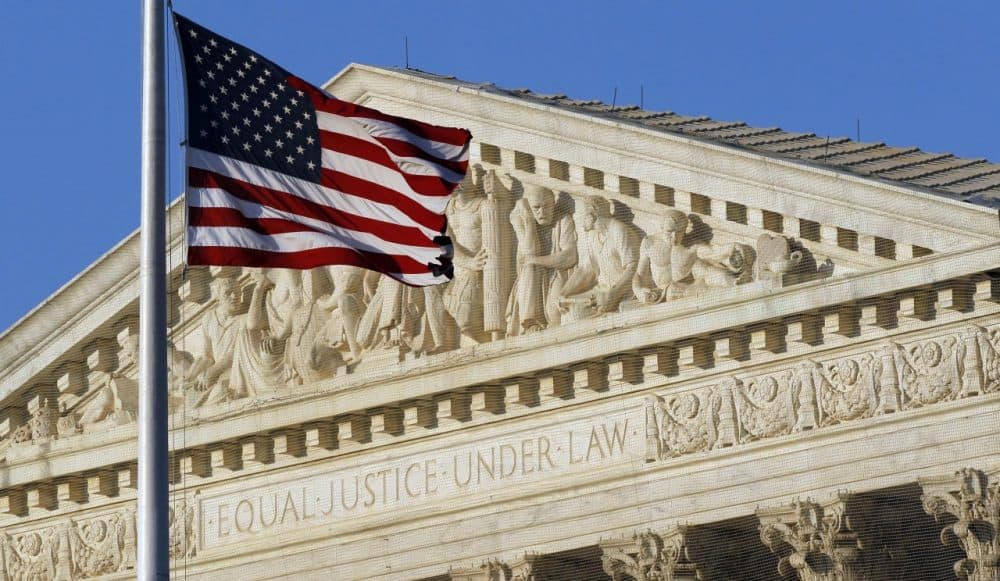Advertisement
Reactions From Both Sides On Gene Patent Ruling
Resume
The Supreme Court ruled Thursday that companies cannot patent parts of naturally-occurring human genes, a decision with the potential to profoundly affect the emerging and lucrative medical and biotechnology industries.
The high court's unanimous judgment reverses three decades of patent awards by government officials.
"I’m so relieved that after such a long process that the final decision has been the right decision."
Lisbeth Ceriani, plaintiff
It throws out patents held by Salt Lake City-based Myriad Genetics Inc. on an increasingly popular breast cancer test brought into the public eye recently by actress Angelina Jolie's revelation that she had a double mastectomy because of one of the genes involved in this case.
"This is a beautifully simple opinion — it was such a pleasure to read and it's very common sense," legal expert Emily Bazelon told Here & Now's Meghna Chakrabarti. "Basically, if you find something in nature and you don't do anything to it other than discover it, you don't get to own it. You can't have a patent of it. In other words, there's no act of invention in the pure discovery."
Plaintiff's reaction
Lisbeth Ceriani is a breast cancer survivor and one of the plaintiffs in the case.
She got involved in the case after she was unable to get insurance coverage for the breast cancer gene mutation tests BRCA1 and BRCA2 because the patent owner, Myriad Genetics, had not contracted with her insurance company.
"I'm so relieved that after such a long process that the final decision has been the right decision, and our genes are no longer being held hostage by a private company," Ceriani told Here & Now. "They were patenting the actual gene so that no other doctor or researcher was allowed to look at my gene out of my body, except for the folks at Myriad. Now they can go on to develop all sorts of different tests to test the same gene and find out different therapies using that gene that they were not allowed to do for the past decade while the patents were in place."
"In truth though, these molecules were actually created in the lab just like cDNA."
Greg Castanias, represents Myriad
Myriad Genetics' perspective
Greg Castanias is an intellectual property lawyer with Jones Day and was part of the Myriad Genetics legal team.
"Obviously we're disappointed," Castanias told Here & Now. "What the court did in making that ruling was to not appreciate either the inventive process or the contribution that Myriad's inventors made to society. I think the notion is somehow or another that these claims to isolated DNA are ... DNA that is in our body. And that's certainly the way Justice Thomas's opinion looked at it. In truth though, these molecules were actually created in the lab just like cDNA."
The court did rule that synthetically created DNA, known as cDNA, can be patented "because it is not naturally occurring," according to the decision written by Justice Thomas.
More rulings to come
With thousands of existing patents now in question due to Thursday's ruling, there will be more court cases to come, according to Bazelon.
"The first tasks for the lower courts will be to figure out, OK, are those patents just like, or enough like, Myriad Genetics' patent that they're not allowed anymore, or is there something else — some act of invention going on in them that makes them different," Bazelon said.
The Associated Press contributed reporting to this article.
Guests:
- Emily Bazelon, senior editor for Slate magazine and senior research fellow at Yale Law School.
- Lisbeth Ceriani, breast cancer survivor and one of the plaintiffs in the case.
- Greg Castanias, intellectual property lawyer representing Myriad.
This segment aired on June 13, 2013.